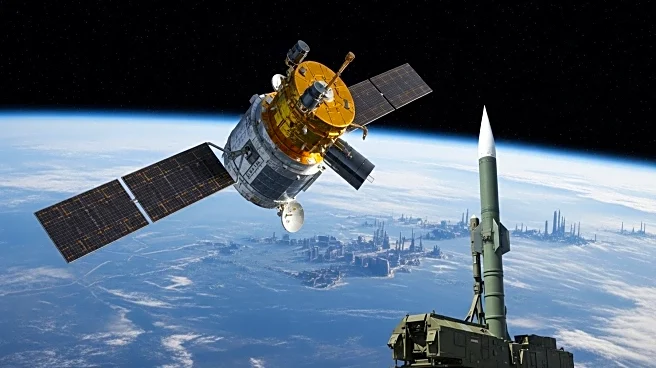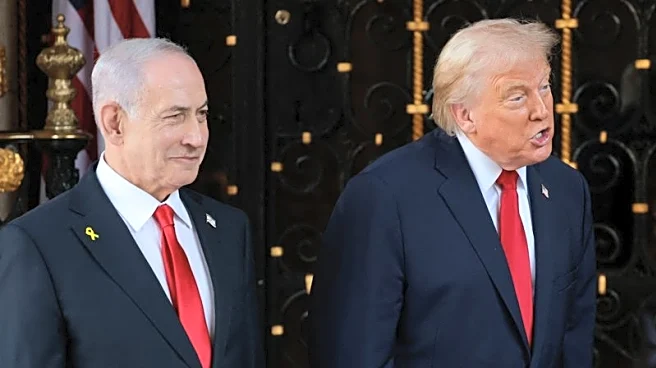What's Happening?
President Trump has reportedly approved a plan to provide Ukraine with intelligence to conduct missile strikes on Russian energy infrastructure, according to a recent report. This intelligence-sharing agreement involves the Pentagon and U.S. intelligence agencies assisting Kyiv in targeting oil refineries, pipelines, and other critical infrastructure that generate revenue for the Kremlin. The Trump administration has also encouraged NATO allies in Europe to share similar intelligence with Ukraine. Additionally, the administration is contemplating supplying Ukraine with long-range firepower, including Tomahawk and Barracuda cruise missiles, which can strike targets over 500 miles away. Ukrainian President Volodymyr Zelensky has requested the sale of Tomahawk missiles during a closed-door meeting with President Trump, who appeared receptive to the idea. However, a final decision on providing long-range missiles has not yet been made.
Why It's Important?
The potential provision of intelligence and long-range missiles to Ukraine marks a significant shift in U.S. policy, potentially escalating the conflict between Ukraine and Russia. By enabling Ukraine to target Russian infrastructure, the U.S. aims to weaken the Kremlin's financial resources and military capabilities. This move could bolster Ukraine's defense efforts and alter the dynamics of the ongoing war. The decision also reflects President Trump's increasing support for Ukraine amid stalled peace negotiations with Russia. If implemented, this strategy could have profound implications for U.S.-Russia relations and NATO's role in the conflict, potentially leading to heightened tensions and further geopolitical instability.
What's Next?
The Trump administration is still deliberating on whether to provide Ukraine with long-range missiles, and a final decision has not been made. If approved, the sale of Tomahawk and Barracuda missiles could significantly enhance Ukraine's military capabilities, allowing it to strike deeper into Russian territory. The administration's decision will likely influence NATO allies' actions and could prompt reactions from Russia, potentially affecting diplomatic relations and military strategies. The situation remains fluid, with ongoing discussions and potential developments in U.S. foreign policy regarding the conflict.
Beyond the Headlines
The decision to provide Ukraine with intelligence and potentially long-range missiles raises ethical and strategic questions about the U.S.'s involvement in foreign conflicts. It highlights the complexities of international diplomacy and the balance between supporting allies and avoiding direct confrontation with adversaries. The move could set a precedent for future U.S. military aid and intelligence-sharing agreements, impacting global security dynamics and the role of international alliances in conflict resolution.










